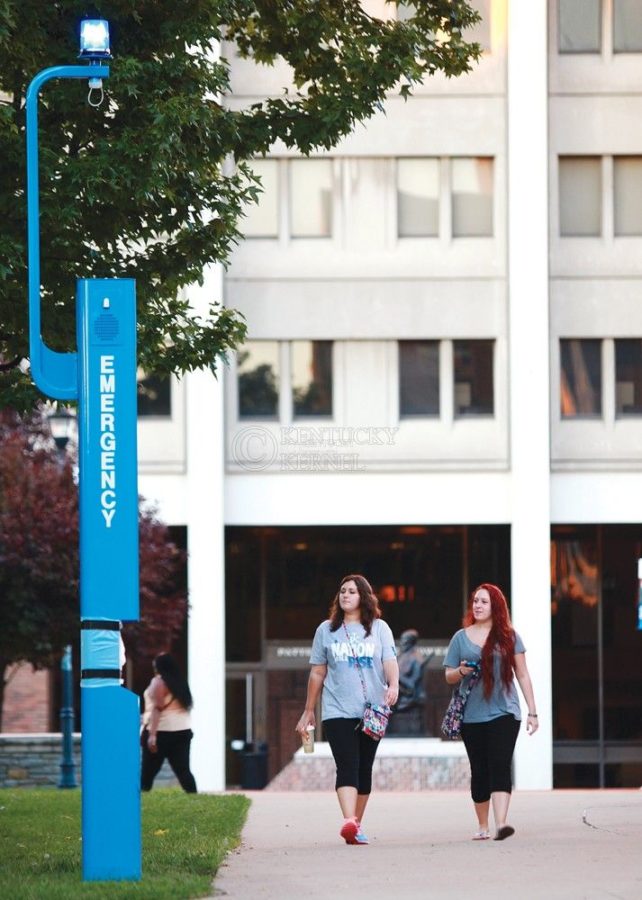Is Big Blue Brother watching us?
September 9, 2013
UK just added 2,000 surveillance cameras watching students on campus, and they are tracking where students go with their new student ID system.
When used to access a door, the new Wildcard IDs will make a record of the time, door and ID used and send that information to a database controlled by someone at the UK Police Department, according to UK spokesman Jay Blanton.
The American Civil Liberties Union is concerned about students’ privacy, and so is the Kernel.
“There is a very careful balance between privacy rights and security,” said Amber Duke, ACLU of Kentucky spokeswoman. “It’s very important for universities to have clear policies, so that students, faculty and staff can be in on the debate (about what is best for their campus.)”
After the ACLU was unable to obtain a copy of UK’s policy regarding the new security policy back in February, the Kernel asked UK who would have access to the information captured from student ID use and how long it would be saved.
We were only told that UK police department officials would have access to it, and we were not told how long the information would be kept.
“(UK) told us they would not be tracking students,” Duke said. “But now that that is a possibility, there is a potential to abuse it.”
The surveillance, new to campus this year, is part of a $5 million overhaul to campus security, which included the installation of the new emergency towers and revamping of the Wildcard ID system.
This intrusiveness might be justifiable if UK was a particularly dangerous place, but it is not.
According to a 2010 Daily Beast ranking of the most dangerous campuses in the nation, UK ranked 80 places lower than the most “dangerous” school in the state, the University of Louisville. The only campus in the bluegrass listed as safer than UK was Northern Kentucky University.
The university’s online crime log is mostly filled with small thefts and drinking-related issues.
Even if UK was a particularly dangerous place, increasing the security to Orwellian proportions wouldn’t necessarily prevent crime. The cameras can only offer information to police after a crime has been committed. And tracking which buildings students access after hours with their IDs seems even less helpful in preventing crimes.
The focus of security practices should always be protecting students, and giving them a sense of safety. It should not make them feel like they are being watched and tracked everywhere they go.
One thing we do think UK got right in the overhaul gives students a sense that help is not far away, without being over intrusive. The 26 “Blue Light” emergency towers — which allow students to press a blue light and connect with emergency officials — may actually help prevent crimes. We haven’t determined how long it would take for help to arrive for a student in trouble, but an officer that is alerted of a crime in progress can be infinitely more effective that one tracking students via cameras and a database.
Improving student safety is always a noble cause and not one we should talk about churlishly. Holes in security should be patched regularly, but wisely. As it is, the new measures appear to have little effect on actual student safety, yet tangle UK in a myriad of privacy concerns. Instead of acting like Big Brother, UK should simple try to protect students like they are family.
































































































































































